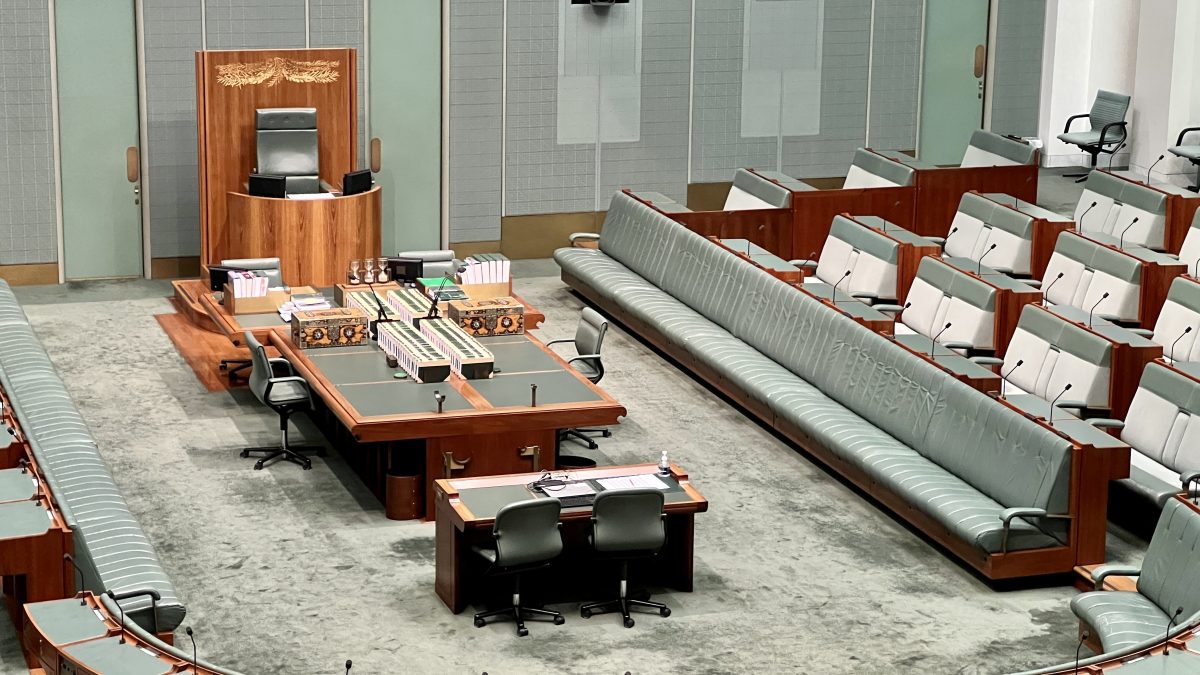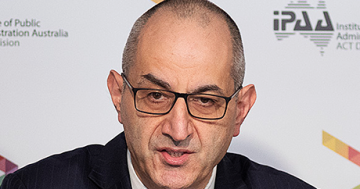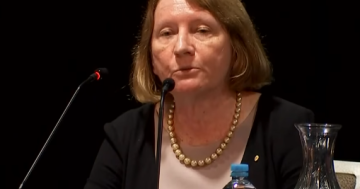
Michelle Grattan detailed what she sees as the current failings of the APS, especially Robodebt. Photo: James Coleman.
Veteran press gallery journalist Michelle Grattan has delivered a scathing critique of the public service during an address inside Parliament House that even suggests a royal commission into the APS might be warranted.
The closely watched House of Representatives Speaker’s Lecture (in Parliament House’s theatre) was presented on Monday night by the highly respected Grattan – a five-decade veteran of political journalism, current professorial fellow at the University of Canberra and chief political correspondent at The Conversation.
Her speech was sharply critical of the current state of politics in Australia, as well as the modern media landscape.

Veteran political journalist Michelle Grattan has delivered a scathing critique of the public service. Photo: The Conversation.
But Grattan saved some of her most pointed barbs for the bureaucracy, highlighting Robodebt, the corrupting influence of external consultants, and the text messages of Home Affairs secretary Mike Pezzullo as three highly publicised examples of how the APS has lost its way.
“Public servants should go back to core values, to being more frank, fearless and robust in dealing with ministers and with each other,” she said.
“The Thodey inquiry notwithstanding, it’s perhaps worth discussing whether there should be a royal commission into the service – half a century after the Coombs royal commission.”
Grattan said governments of both sides had closed down media access to the public service and “beefed up” the public relations sections of departments to the point of being “mostly worse than useless”.
And she referred to the “overpopulated” PR section of the Defence Department as a “standing joke” with the media.
The bureaucracy was now too meek, she said.
“The Albanese government came to power promising to revitalise a public service that had lost capability and independence and was demoralised under the Morrison government,” she said.
“Maybe it will, though it’ll be years before we can judge. But it wasn’t just the attitude of the former government that dragged the public service down. It’s a much longer-term, complicated story.
“The advisory process has become more competitive over the decades. Since the early 1970s, there’s been the rise and rise of the ministerial office, with its powerful and sometimes pesky staffers, who have special access to ministerial ears …
“In recent years, the pitches from the consultancy firms have found extensive favour with governments anxious to outsource. Also, in a public service that has lost much of its prestige, rising talent is easily tempted into well-rewarded private sector positions, especially in those high-paying consultancies.
“The modern doctrine of the need for the bureaucracy to be more ‘responsive’ to its political masters has changed the dynamic in the relationship between ministers and their bureaucrat.
“Many public servants are, to be blunt, meek in the face of their political masters. Those in the top jobs may have been chosen with at least half an eye to their political orientation.
“As their contracts come up for renewal, some may become more cautious. Others may just want to keep out of trouble, having in mind a possible later private-sector career.
“This year, the details of three scandals have cast the public service in a bad light. The Robodebt Royal Commission’s report documented how senior bureaucrats had acted reprehensibly, variously to please ministers or their bureaucratic bosses, or because they were fearful of speaking out.
“The very different revelations about how the public service has become enmeshed with the big consultancies have highlighted the extent to which the bureaucracy has been, in effect, compromised.
“Partly the fault lies with government decisions to prefer outsourcing on many fronts, not just for delivery but for advice. But partly, too, the public service became complicit in a mutual back-scratching operation, with bureaucrats jumping easily to lucrative jobs in firms they had dealt with.
“The emergence in the media of the texts sent by … Mike Pezzullo to a Liberal insider close to then prime ministers Turnbull and Morrison raises a very different issue.
“This was an extraordinary case of a departmental head dramatically inserting himself into the political process in pursuit of his own bureaucratic and policy agenda. Some bureaucrats always play the politics behind the scenes or go out of their way to please their masters.
“But the indictment of bureaucrats over Robodebt is a huge wake-up call about a malaise in public service culture. The out-of-control use of consultancies, now being reined in, weakened the service’s ability to do its job. The Pezzullo affair goes to the heart of how top bureaucrats should behave.
“A public service that lapses in terms of its capability, values, behaviour, or all three, has obvious implications for the policy process, as well as for the integrity of government.”




















